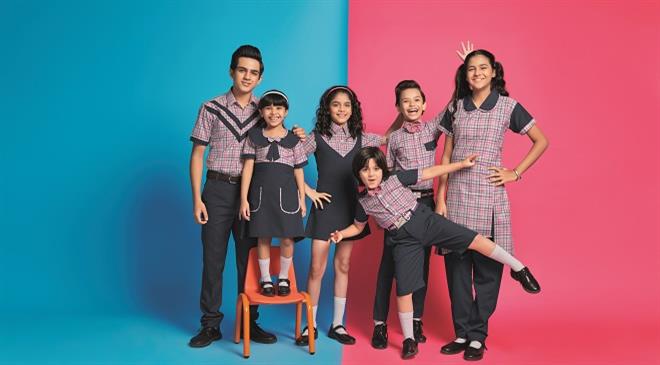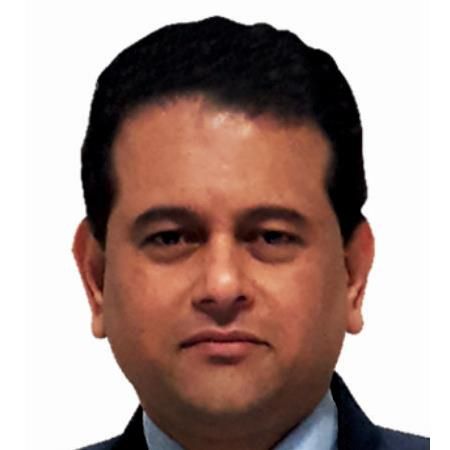We will be focusing on different markets and segments in textiles
The flagship company of the India-based Arvind Mafatlal Group, Mafatlal Industries Ltd. has been a leader in the textile industry for over 100 years. Even with decades of experience in retail in textiles and other products, the company is still constantly innovating and improving to cater to the large population of the new generation in India. In an interview with Fibre2Fashion, Mafatlal Industries’ CEO Raghunath Mannil Balakrishnan speaks about the company, its products, export markets and future plans.
What has been the growth story of Mafatlal—the major milestones achieved, the important financial years? Any other changes in the company’s operations and divisions?
Our milestones, along with important years and changes are:
1905: Founder Mafatlal Gagalbhai set up the first textile mill in Ahmedabad, India.
1912-1931: He goes on to purchase four more textile mills across Gujarat and Mumbai.
1945-1954: The group continues to invest heavily in cotton textile mills and their modernisation, to become the third largest mill owner in India.
1954: Arvind Mafatlal, grandson of Mafatlal Gagalbhai, takes over the reins of the Group.
1955-1990: The Group, under the vision of Arvind Mafatlal, starts diversifying into multiple industries like petrochemicals, specialty chemicals, information technology, plastics, finance, engineering, etc, thus becoming one of India’s early significant conglomerates. The dynamism and pioneer ship of Arvind Mafatlal led to business partnerships and joint ventures with global giants like Shell, Hoechst, and Monsanto.
1990-2000: Arvind Mafatlal’s son Hrishikesh Mafatlal takes over the reins of the company and further consolidates the Group’s reposition in chemicals, gas distribution and textiles, including an entry into denim manufacturing with a joint venture with US-based Burlington Industries.
2000-2019: Mafatlals launched uniform manufacturing and home furnishing range. Started Mafatlal healthcare division to cater the healthcare industry. We also moved into further capacity expansion and modernisation of our textile operations in Nadiad and Navsari units.
2019-2022: In 2019, Priyavrata Mafatlal (5th Generation), took over as CEO and MD. We move into supplying disposable nonwoven textile products such as masks, gloves, PPE kits, and so on during the pandemic. We also foray into hygiene, education technology and services space with our new tech division. (New Divisions: Edtech, Health care, Technology)
What is your market positioning in the Indian textile industry as on date? What are your strengths as a company?
A legacy that dates to 1905, Mafatlal Industries blends traditional values and modern technology, triumphing over volatile market dynamics. The company is one of the oldest textile manufacturers in India and is engaged in manufacturing and sale of fabric in various categories of cotton, polyester-cotton, linen, voiles, prints, etc. The company has a presence of over 11 decades in textile manufacturing and is a part of Arvind Mafatlal Group. The company is widely recalled for its innovative manufacturing facilities.
Our strengths are:
• Reputed business household with a vintage track of operations.
• Robust network of distribution channels with plan to foray in retail space.
• Strategic reforms taken up to turnaround business profitability.
• Initiatives to reduce debt and interest pay-out burden.
How much do each of your product verticals – Shirtings, Suitings, Denims, Corduroys, School, Corporate & Institutional Uniforms, Bed & Bath Linen and Ready-mades contribute to your revenue mix?
School, Corporate & Institutional Uniforms is the highest earner at ₹575 crore, followed by Shirting & other products at ₹325 crore. Ladies wear fabrics fetch ₹50 crore, Bed & Bath Linen ₹30 crore, Suiting ₹20 crore, Health & Hygiene ₹20 crore, and Modern Trade and Online ₹15 crore.

Who are your major competitors in the local and international market?
• Arvind Ltd
• Vardhman Textiles Ltd
• JCT Ltd
• Morarjee Mills
Which are your major export markets? Which are the top products exported?
Our major export markets are the Middle East, Saudi Arabia, Africa, Europe, Sri Lanka and Bangladesh. Our top export products are voiles, cotton and rayon printed fabrics, printed voiles, yan dyed shirting, and various uniform fabrics.
What is the retail presence of Mafatlal online and offline? How many EBOs, MBOs, and franchisee stores are present?
We are present online on leading marketplaces like Flipkart and Amazon. Offline, we sell through large format stores like D-Mart, Walmart and Metro. We also have Exclusive Brand Outlets (EBOs)—the Mafatlal family shops. Our products are also available on most of the Multi Brand (MBOs) high-end fabric stores across India. We do not have any franchisee.
What is the retail distribution strategy for tier 2 and tier 3 towns in India?
We have more than 900 dealers across India, who distribute our large range of fabric collections to tier 1, 2 & 3 towns.
How did you manage the second wave of the pandemic? How were effects of the second wave different from the first?
Both waves of the COVID-19 pandemic created lot of issues for us in manufacturing units and we incurred losses in two financial years.
How have tastes of consumers altered in the current scenario and how are you going about it?
Purchase points have changed from traditional retail outlets to modern and online markets. We have changed our marketing and sales strategies accordingly.
The virus is here to stay. What steps have you taken to mitigate its impact – be it at the supply chain level or sourcing of raw material, logistics, etc.?
The vaccination programme successfully carried out by the Indian government has to a great extent decreased the worry of COVID-19. Like other viruses, this virus too is going to stay, but supply chain is getting into normal gear. Logistics have become expensive, but market has learned to accommodate the cost and changes.
There has been a lot of talk on how India could be one of the countries that the world could be looking at as an alternative manufacturing destination. Have players like you taken any step to reinforce this hope?
Yes, we are reaching out to customers and buyers across the world sending samples and conducting business negotiations regularly. We are rearranging the product groups accordingly.

What percentage of your business was brick and mortar before COVID-19? What changes do you see in the current times? Kindly elaborate.
Pre-COVID, around 90 per cent of our business was brick-and-mortar. We expect this to change to 60 per cent by 2030.
What is your recovery model to reach the pre-COVID level?
We have already reached pre-COVID level.
Sustainability has acquired more prominence in the current scenario. What are some of the steps taken by you in this direction?
We have been working in this direction for the last 10 years. We are in the process of commissioning a zero-discharge plant to recover 85 per cent water back from discharge. Simultaneously, we are moving into latest processing technologies, like waterless fabric processing.
Please share details of your last two fiscals, and the target set for the current fiscal.
For the financial year ending March 31, 2021, our turnover was ₹63,784.20 lakhs, which increased substantially to ₹1,05,148.72 lakhs in the year ending March 31, 2022.
What lies ahead of the road? Any important announcements coming by?
We will be focusing on different markets and segments in textiles. Education and health technology services are our focus area in non-textile business. We are also planning a concentrated approach in FMCG market with our large basket of hygiene products.



